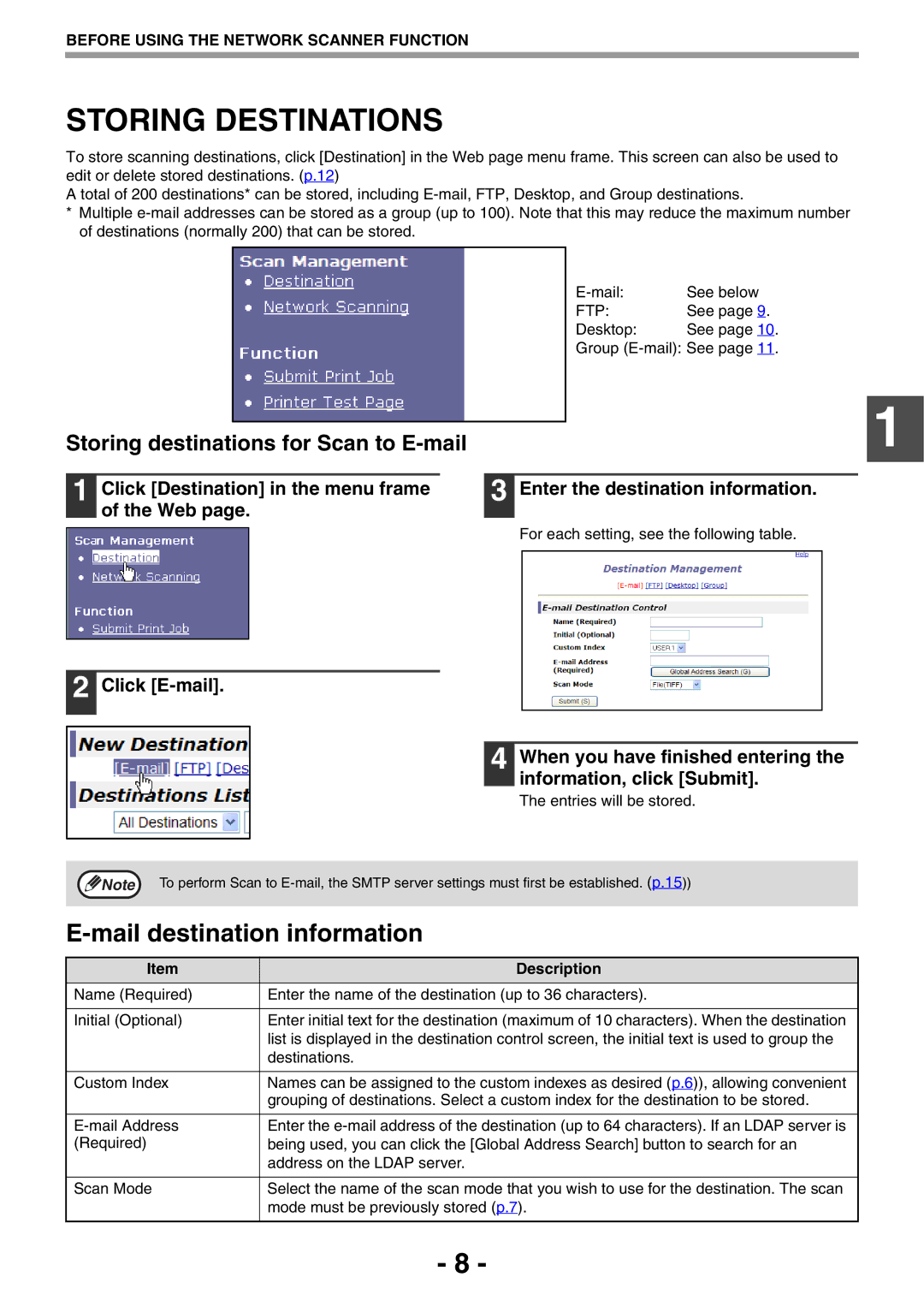
BEFORE USING THE NETWORK SCANNER FUNCTION
STORING DESTINATIONS
To store scanning destinations, click [Destination] in the Web page menu frame. This screen can also be used to edit or delete stored destinations. (p.12)
A total of 200 destinations* can be stored, including
*Multiple
See below | |
FTP: | See page 9. |
Desktop: | See page 10. |
|
|
|
| Group | ||
|
|
|
|
|
|
|
Storing destinations for Scan to | 1 | |||||
|
|
|
|
|
| |
1 | Click [Destination] in the menu frame | 3 | Enter the destination information. | |||
| of the Web page. |
|
|
|
| |
|
|
|
| For each setting, see the following table. | ||
2 Click
4 When you have finished entering the information, click [Submit].
The entries will be stored.
![]() Note To perform Scan to
Note To perform Scan to
E-mail destination information
Item | Description |
|
|
Name (Required) | Enter the name of the destination (up to 36 characters). |
|
|
Initial (Optional) | Enter initial text for the destination (maximum of 10 characters). When the destination |
| list is displayed in the destination control screen, the initial text is used to group the |
| destinations. |
|
|
Custom Index | Names can be assigned to the custom indexes as desired (p.6)), allowing convenient |
| grouping of destinations. Select a custom index for the destination to be stored. |
|
|
Enter the | |
(Required) | being used, you can click the [Global Address Search] button to search for an |
| address on the LDAP server. |
|
|
Scan Mode | Select the name of the scan mode that you wish to use for the destination. The scan |
| mode must be previously stored (p.7). |
|
|
- 8 -
